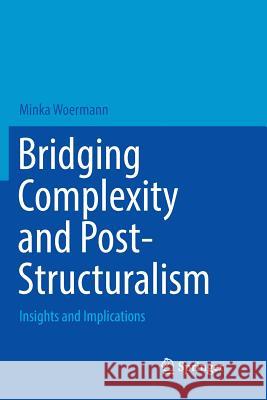Bridging Complexity and Post-Structuralism: Insights and Implications » książka
topmenu
Bridging Complexity and Post-Structuralism: Insights and Implications
ISBN-13: 9783319818030 / Angielski / Miękka / 2018 / 205 str.
Kategorie BISAC:
Wydawca:
Springer
Język:
Angielski
ISBN-13:
9783319818030
Rok wydania:
2018
Wydanie:
Softcover Repri
Ilość stron:
205
Waga:
0.31 kg
Wymiary:
23.39 x 15.6 x 1.17
Oprawa:
Miękka
Wolumenów:
01
Dodatkowe informacje:
Wydanie ilustrowane











